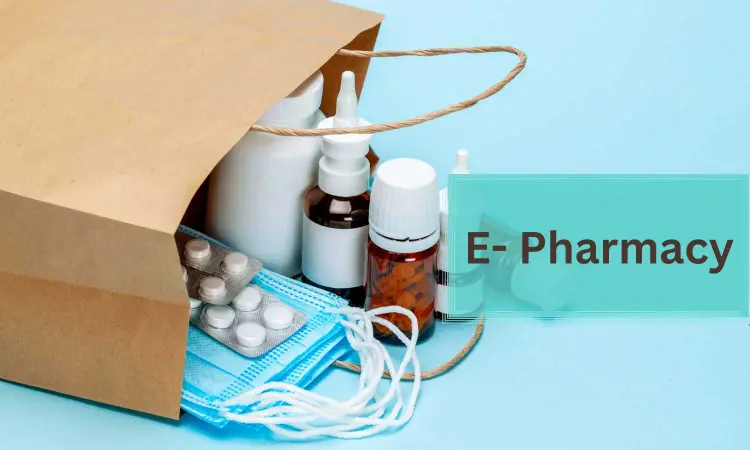- Home
- Medical news & Guidelines
- Anesthesiology
- Cardiology and CTVS
- Critical Care
- Dentistry
- Dermatology
- Diabetes and Endocrinology
- ENT
- Gastroenterology
- Medicine
- Nephrology
- Neurology
- Obstretics-Gynaecology
- Oncology
- Ophthalmology
- Orthopaedics
- Pediatrics-Neonatology
- Psychiatry
- Pulmonology
- Radiology
- Surgery
- Urology
- Laboratory Medicine
- Diet
- Nursing
- Paramedical
- Physiotherapy
- Health news
- Fact Check
- Bone Health Fact Check
- Brain Health Fact Check
- Cancer Related Fact Check
- Child Care Fact Check
- Dental and oral health fact check
- Diabetes and metabolic health fact check
- Diet and Nutrition Fact Check
- Eye and ENT Care Fact Check
- Fitness fact check
- Gut health fact check
- Heart health fact check
- Kidney health fact check
- Medical education fact check
- Men's health fact check
- Respiratory fact check
- Skin and hair care fact check
- Vaccine and Immunization fact check
- Women's health fact check
- AYUSH
- State News
- Andaman and Nicobar Islands
- Andhra Pradesh
- Arunachal Pradesh
- Assam
- Bihar
- Chandigarh
- Chattisgarh
- Dadra and Nagar Haveli
- Daman and Diu
- Delhi
- Goa
- Gujarat
- Haryana
- Himachal Pradesh
- Jammu & Kashmir
- Jharkhand
- Karnataka
- Kerala
- Ladakh
- Lakshadweep
- Madhya Pradesh
- Maharashtra
- Manipur
- Meghalaya
- Mizoram
- Nagaland
- Odisha
- Puducherry
- Punjab
- Rajasthan
- Sikkim
- Tamil Nadu
- Telangana
- Tripura
- Uttar Pradesh
- Uttrakhand
- West Bengal
- Medical Education
- Industry
96% of Online Pharmacies Operating Illegally, Reveals Report

New Delhi: The alarming rise of illicit online pharmacies continues to put public health at significant risk, with 96% of online pharmacies operating illegally, according to the Alliance for Safe Online Pharmacies (ASOP), as highlighted in the 2024 Review of Notorious Markets for Counterfeiting and Piracy.
As per the report, these unregulated platforms often sell counterfeit medications that evade safety standards, posing severe risks to consumers. The issue has become even more pressing in 2024, as counterfeit drugs are increasingly sold to unsuspecting buyers who believe they are purchasing legitimate pharmaceuticals.
The convenience of purchasing medications online has become more widespread, especially during the COVID-19 pandemic, which saw an explosion in e-commerce. While legitimate online pharmacies are licensed and regulated, the majority of these online sellers are operating outside the law. These illicit websites frequently offer prescription drugs without requiring a valid prescription, making them highly attractive but extremely dangerous to consumers.
Statistics from the Alliance for Safe Online Pharmacies (ASOP) reveal that 20 new illicit pharmacy websites are created every day. Many of these websites appear legitimate, offering brand-name medications at discounted prices, but they lack proper oversight, which means consumers are unknowingly purchasing potentially dangerous and counterfeit drugs.
Counterfeit medications are often manufactured with substandard or harmful ingredients, and can have deadly consequences. Studies show that 38% of global counterfeit medicine seizures involve counterfeit U.S. brands, which are often targeted by criminals because of their widespread recognition and trust. Even when counterfeit drugs contain the right active ingredients, they may be mixed with harmful substances or produced in unsanitary conditions.
The risks associated with buying medications from illicit online pharmacies are growing. According to a 2023 survey, 24% of Americans who bought prescription drugs from these illegal sites reported exposure to substandard or counterfeit medications. This is a significant increase from previous years, highlighting the urgent need for stronger consumer awareness and enforcement.
U.S. authorities are taking action. In September 2024, the Department of Justice announced charges against 18 individuals involved in manufacturing and distributing counterfeit pills. The case represents just one of many ongoing efforts to shut down these illegal operations. However, the international nature of the problem makes enforcement challenging, as many illicit pharmacies are based outside the U.S., complicating the regulatory process.
Farhat Nasim joined Medical Dialogue an Editor for the Business Section in 2017. She Covers all the updates in the Pharmaceutical field, Policy, Insurance, Business Healthcare, Medical News, Health News, Pharma News, Healthcare and Investment. She is a graduate of St.Xavier’s College Ranchi. She can be contacted at editorial@medicaldialogues.in Contact no. 011-43720751


